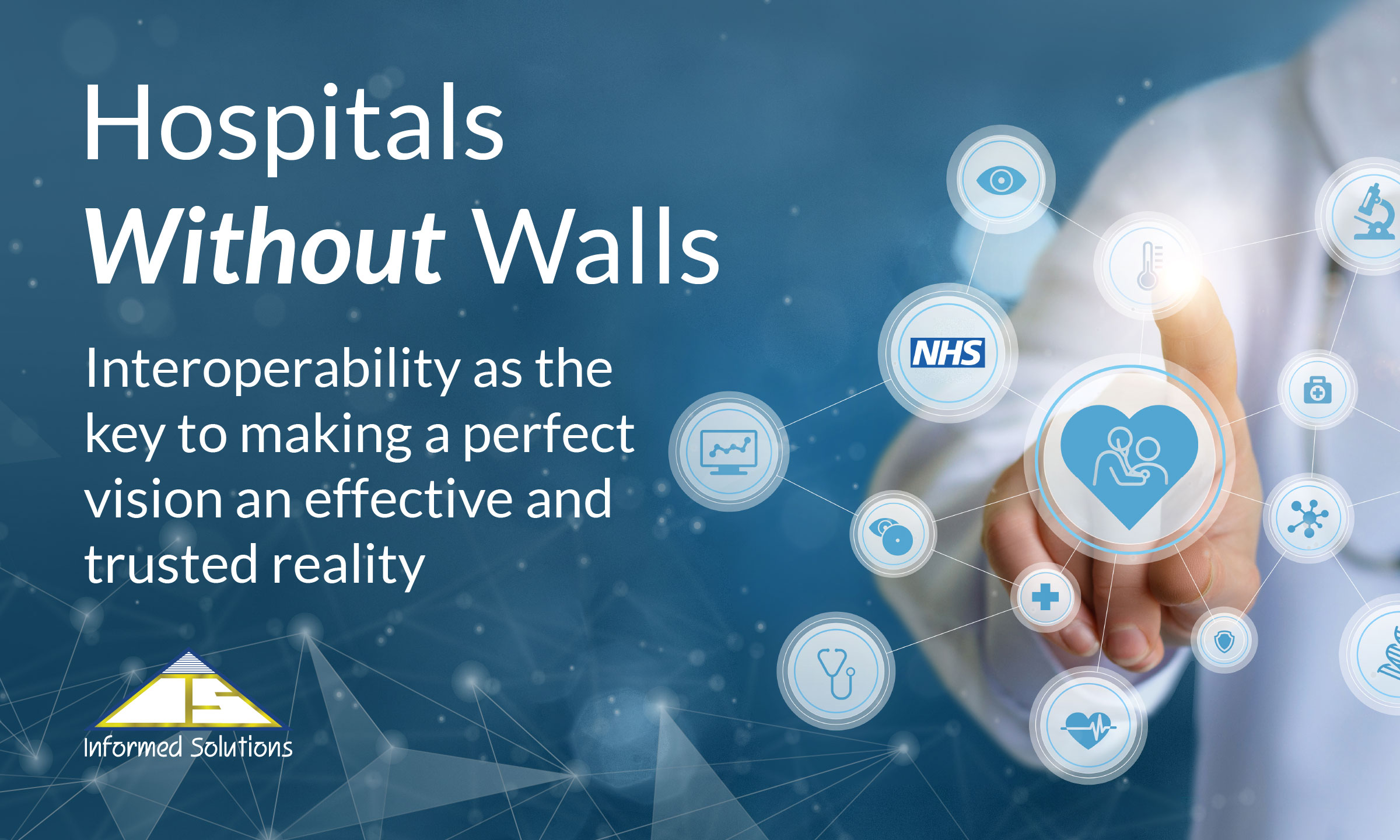
Justin Hassall, Transformation Director, Informed Solutions
With Integrated Care Systems (ICSs) becoming a reality as an essential ingredient of the NHS Long Term Plan, the need to ensure that data and information flows readily and securely between central, regional, and local care settings is vital.
The global health care sector was already using new technologies and processes to extend care delivery outside the hospital setting when COVID-19 forced providers to transform operations overnight and dramatically adopt virtual consultations, visits, and remote patient monitoring.
This enforced shift in patient engagement and care delivery has brought many opportunities and benefits, not least the potential to deliver physical and virtual care in a meaningful and integrated way that delivers better patient experiences and better clinical outcomes regardless of where patients are.
While the envisioned future still calls for brick-and-mortar hospitals, much care provision outside of procedure delivery could shift away from this setting and be delivered in the community and enabled through interoperable data, and digital delivery. This is also required to deliver the Governments wider ambition of achieving a whole system approach to health and social care, in which data and information play a key role in care delivery and preventative interventions.
To make this vision an effective reality, the NHS and the whole supplier community must provide the integration, collaboration, communication, and information sharing needed to serve the needs of the whole population and a growing body of patients that require care in remote settings - receiving care where they need it most, and where their needs can be best met. This care will be delivered by multidisciplinary teams collaborating remotely to deliver a whole system approach to care throughout communities.
With existing levels of fragmentation and divergence across the NHS, interoperability remains a fundamental building block for new digitally enabled integrated care services. When set against the move towards care provision outside of physical wards, our view is that data sharing platforms should not merely be defined by the available technology, but by the needs of platform users, such as patients, clinicians, and the wider health and social care community.
A truly effective interoperability ecosystem should provide an information infrastructure that uses technical standards, policies, and protocols to enable seamless and secure capture, discovery, exchange, and utilization of health information, with appropriate controls to ensure proper and effective use. It must also better meet the challenge of sharing of unstructured data, for example by employing AI and ML techniques to discover and provide relevant information at the point of use.
We can see through our work with NHS England (NHSE) on the national Learn from Patient Safety Events (LFPSE) service, that industry sign up to and membership of technical standards such as FHIR is already having a significant and positive impact on data sharing, learning and improved care delivery. We also welcome and support the work that is being done by NHS Digital in the UK to make integration easier for health and care providers and systems suppliers, for example via the Digital Onboarding Service and Developer Hub as two very practical initiatives to help accelerate delivery of a more integrated future.
As ever, the complexity of delivering a more effective interoperability ecosystem against a background of a constantly changing priorities for our national health systems will remain a challenge, however the need to deliver more care outside of the traditional hospital setting looks set to remain a consistent theme. As such, the need to deliver a more effective interoperability ecosystem is now an urgent priority towards making the hospitals without walls vision an effective and trusted reality.








